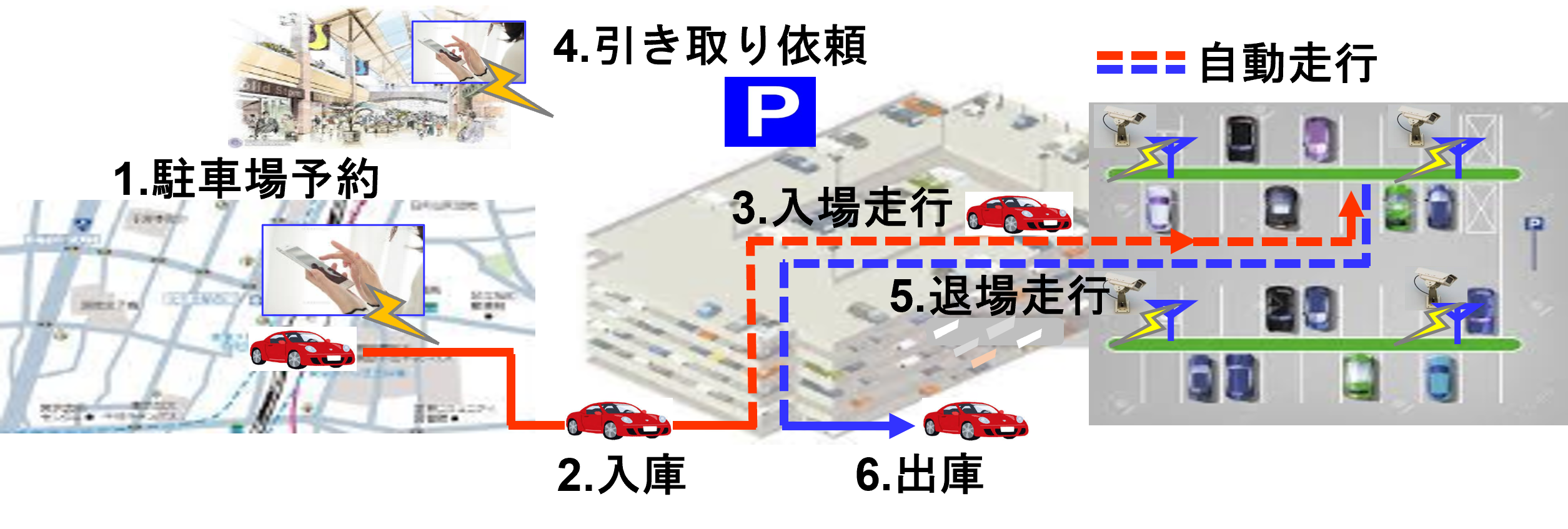In a major step in direction of environment friendly city mobility, a global normal for “automatic valet parking” co-developed by Japan and Germany has been formally issued. This system leverages autonomous car expertise to navigate autos into parking areas in massive amenities, bettering utilization of parking area and person comfort, decreasing accidents, and slicing CO2 emissions.
Large complexes, buying malls, theme parks, and airports typically wrestle with restricted parking area and could be sources of frustration for drivers who wrestle to discover a spot or park a substantial distance from their vacation spot. To counteract these inefficiencies, numerous nations, together with Japan, the U.S., China, and nations throughout Europe, have been working to commercialize automated valet parking programs.
The collectively developed worldwide normal goals to supply a unified guideline for the operation, procedures, and interface specs between autos and infrastructure. This was largely pushed by the work achieved in Japan via analysis, growth, and demonstration exams of car expertise. The proposal for this technical normal was initiated by Japan in collaboration with Germany, with the objective of facilitating a worldwide uptake of the automated valet parking system.
The system permits a car, as soon as dropped off on the parking zone entrance, to drive, park, and return to the person autonomously. The normal supplies complete operational procedures from reserving a parking area to selecting up the car. The car and parking zone infrastructure cooperate to attain Level 4 unattended computerized driving, necessitating a exact interface for collaboration.
Three forms of interface specs are outlined in the usual to accommodate a wide range of world programs. Type 1 pertains to car management features, Type 2 pertains to infrastructure features, and Type 3 includes mutual coordination between car and infrastructure. This system, notably Type 3, was examined in a challenge by an automatic driving enterprise examine group, co-organized by the Japanese Ministry of Economy, Trade and Industry (METI) and Ministry of Land, Infrastructure, Transport and Tourism (MLIT).
The normal was proposed by Japan to ISO (International Organization for Standardization)/TC204 (ITS Intelligent Transport Systems)/WG14 (Driving Control), which Japan chairs internationally, in April 2017, and was formally issued as a global normal on July 13, 2023.
The adoption of the usual is predicted to hurry up the implementation of Level 4 automated driving and the social deployment of the “automated valet parking system”. This will improve the efficient use of parking areas and cut back parking-related accidents. Furthermore, it permits for auxiliary providers like recharging and automotive washing to be offered whereas the automotive is parked, and facilitates straightforward car entry for all customers, together with the aged and wheelchair customers. The system’s potential utility in supply and in-plant transportation industries may additionally assist alleviate labor shortages, signaling a extra environment friendly and accessible future for city mobility.


